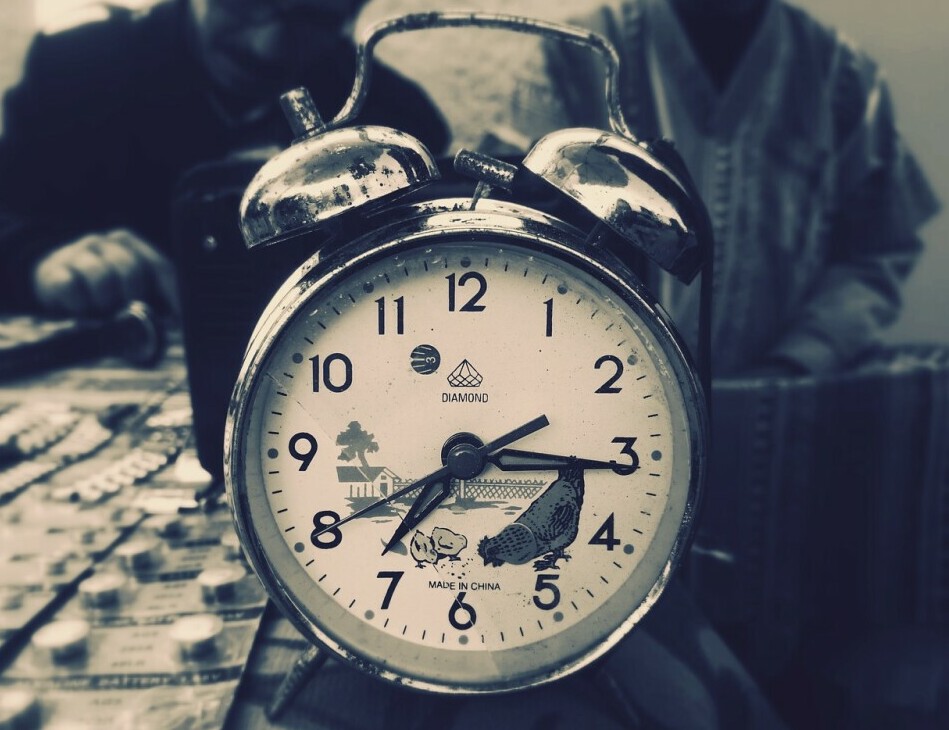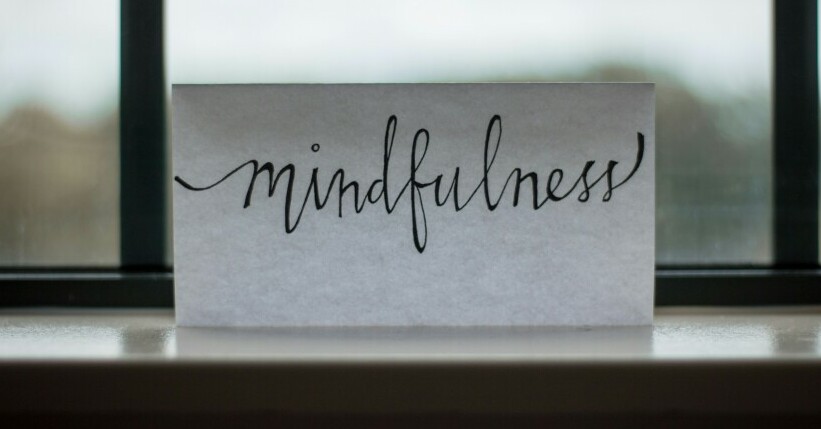The Phenomenon Of False Awakenings: What Is Really Happening?
False Awakenings are a perplexing phenomenon that can leave individuals feeling disoriented and questioning their sense of reality. In simple terms, a False Awakening occurs when a person believes they have woken up from a dream, only to realize later that – this in fact, is itself part of a dream – about waking up!
This can create a confusing loop where the individual experiences multiple False Awakenings in succession, making it difficult to distinguish between dreams and reality.
And this something MOST, IF NOT ALL of us will experience…
The Phenomenon Of False Awakenings: What Is Really Going ON

Personally, I can say from my own experiences I have had my fair share of encounters with False Awakenings. Although by the sounds of things I hear they can be worse than what I’ve had. The night before Job Interviews and early flights I think are good examples where false awakenings are typically common for me.
It will either be a case of not being able to sleep at all, or I will have these False Awakening type dreams.
When they happen I vividly remember waking up in my bedroom, going about my morning routine etc. etc.
However, as I am just about to leave the house, I suddenly found myself back in my bed, realizing that everything I have just experienced is nothing more than a dream.
It’s actually quite relieving at times to know you are dreaming. Say you look at the clock and it says 9AM when you should be up at 8AM (this was a recent one I had).
It’s like if there is something you don’t want to be late for this is like a simulation to scare you about what will happen if you don’t go.
The feelings of disappointment and failure are as real as IF they have really happened but these are not always good dreams to have.
In some cases these can repeat and repeat, again and again (like groundhog day) and if you have seen that film this is exactly what a False Awakening can be like for people.
Key Takeaways
- False Awakenings are a phenomenon where a person believes they have woken up, only to realize later that they are STILL dreaming.
- There are different types of False Awakenings, including those where the dreamer believes they have woken up in a different location or time period.
- Common causes of False Awakenings can include stress, anxiety, and sleep disorders.
- Symptoms of False Awakenings can include confusion, disorientation, and a feeling of being trapped in a dream.
- Coping strategies for False Awakenings can include Reality Checks, Keeping a Dream Journal, and practicing Good Sleep Hygiene.
What are False Awakenings?
False Awakenings can be best described as a dream within a dream. They occur when the dreamer believes they have woken up in their bed, as normal, going about their daily activities, ONLY to discover later that they are still in a DREAM.
Note: It is important to note that False Awakenings are different from Lucid Dreams, where the dreamer is aware that they are dreaming and can exert some control over the dream narrative.
Lucid Dreaming Vs. False Awakenings
The key distinction between False Awakenings and Lucid Dreams lies in the level of awareness.
In False Awakenings, the dreamer is convinced that they are awake and experiencing reality, whereas in Lucid Dreams, the dreamer is conscious of the fact that they are in a dream state.
This subtle difference can make False Awakenings particularly disorienting and difficult to recognize by this contrast.
Different Types of False Awakenings
So, False Awakenings can manifest in various forms – each with their own unique characteristics. One common type of False Awakening involves repetitive cycles, where the dreamer believes they have woken up, only to find themselves back in bed moments later.
This is, as people who experience this will know, a cycle that can repeat multiple times, creating a sense of frustration and confusion.
Another type of False Awakening involves the dreamer experiencing a distorted version of their waking reality.
For example, they may wake up in their bedroom, only to find that the furniture has rearranged itself or that there are strange objects present.
This type of False Awakening can be particularly unsettling, as it blurs the line between dreams and reality.
You might also dream you are waking up in another place and this can feel like it is Incredibly real but then you wake up AGAIN!
Causes of False Awakenings
(Table HERE)
| Cause | Description | Percentage |
|---|---|---|
| Irregular Sleep Schedule | Going to bed and waking up at different times can disrupt the sleep cycle and increase the likelihood of false awakenings. | 30% |
| Stress and Anxiety | High levels of stress and anxiety can cause the brain to be more active during sleep, leading to false awakenings. | 25% |
| Lucid Dreaming | Lucid Dreaming, or being aware that you are dreaming, can sometimes lead to false awakenings. | 20% |
| Alcohol and Drug Use | Alcohol and drug use can disrupt the sleep cycle and increase the likelihood of false awakenings. | 15% |
| Medical Conditions | Medical conditions such as sleep apnea and narcolepsy can increase the likelihood of false awakenings. | 10% |
False Awakenings can be influenced by a combination of psychological and physical factors. On the psychological front, stress and anxiety play a significant role in triggering False Awakenings.
When the mind is overwhelmed with worry or fear, it can manifest in dreams and create a sense of waking up repeatedly.
*I used the example of early flights and Job Interviews – I expect many people will know these dreams.
Physical factors such as Sleep Deprivation or Irregular sleep patterns can also contribute to False Awakenings. When the body is not well-rested, it can disrupt the sleep cycle and lead to fragmented dreams, including False Awakenings.
*I actually believe here that these kinds of dreams are to keep you asleep whilst the body carries out repairs to cells and bodily functions. Dreams I think sometimes purposely work to keep you asleep and even sometimes to wake you up.
Additionally, certain medications or substances, such as alcohol, drugs or sleep aids, can influence dream patterns and increase the likelihood of experiencing False Awakenings.
*Read my article about Using SSRIs For Lucid Dreaming. It’s about the Serotonin system and how it affects our dreams.
Symptoms of False Awakenings
False Awakenings can be accompanied by various symptoms that further contribute to the confusion and disorientation experienced by individuals. On a physical level, individuals may report feeling fatigued even after what they believed was a full night’s sleep.
They may also experience headaches or muscle tension due to the stress caused by the repetitive nature of False Awakenings.
Emotionally, False Awakenings can evoke feelings of frustration, anxiety, and even fear. The constant cycle of waking up and realizing it was all a dream can leave individuals questioning their own sanity and feeling trapped within their own minds.
These emotional symptoms can have a significant impact on overall mental well-being if left unaddressed.
False Awakenings and Sleep Paralysis
Both False Awakenings and Sleep Paralysis can be influenced by various psychological factors, including Stress, Anxiety, and disrupted sleep patterns. Stressful life events, irregular sleep schedules, and sleep disorders such as narcolepsy or insomnia can increase the likelihood of experiencing these phenomena.
In essence, False Awakenings and Sleep Paralysis are linked by their shared occurrence during the delicate balance between wakefulness and sleep. They offer glimpses into the complex workings of the sleeping mind and challenge our understanding of consciousness and reality.
While they can be unsettling experiences, they also provide opportunities for introspection and exploration, inviting individuals to delve deeper into the mysteries of the subconscious mind.
*Note: Both these dream experiences can be used as a gateway to Lucid Dreaming as if you keep having these same dreams you can begin to recognize the experience.
How to Identify False Awakenings
Identifying False Awakenings can be challenging, as they often mimic the experience of waking up from sleep.
However, there are techniques that can help individuals recognize when they are in the midst of a False Awakening as it happens.
One effective method is Reality Testing. Here is where individuals perform simple checks to determine if they are dreaming or awake.
This can include looking at a clock or trying to read a piece of text, as these actions often behave differently in dreams.
Keeping a Dream Journal is another valuable tool for Identifying False Awakenings. By recording dreams upon waking, individuals can review their entries and identify patterns or inconsistencies that may indicate a False Awakening.
This practice also helps improve dream recall and overall dream awareness. And as mentioned above this can be utilized for Lucid Dreaming in many cases.
The Psychological Impact of False Awakenings

False Awakenings can have a profound psychological impact on individuals, particularly if they occur frequently (several times a week) or disrupt daily functioning.
The constant questioning of reality and the inability to trust one’s own perception can lead to heightened anxiety and stress levels.
Over time, this can contribute to the development of anxiety disorders such as generalized anxiety disorder or panic disorder.
Furthermore, the repetitive nature of some False Awakenings can create a sense of helplessness and frustration, which can negatively impact overall mental health.
Individuals may begin to feel trapped within their own minds, unable to escape the cycle of false awakenings.
This psychological toll highlights the importance of addressing and managing false awakenings effectively.
Coping Strategies for False Awakenings
However, while False Awakenings can be distressing, there are coping strategies that individuals can employ to manage and reduce their occurrence. Self-care techniques play a crucial role in managing the psychological impact of False Awakenings.
Engaging in activities that promote relaxation and stress reduction, such as meditation, exercise, or spending time in nature, can help alleviate anxiety and improve overall well-being.
Mindfulness practices are also effective in reducing the frequency of false awakenings. By cultivating present-moment awareness, individuals can become more attuned to the subtle cues that indicate they are in a dream state.
This heightened awareness can help break the cycle of False Awakenings and allow for a more restful sleep.
Treatment Options for False Awakenings

In cases where False Awakenings significantly impact daily functioning or mental health, seeking professional help may be necessary. Therapy options such as Cognitive-Behavioral Therapy (CBT) can be beneficial in addressing the underlying causes of False Awakenings and for developing coping strategies.
CBT helps individuals identify and challenge negative thought patterns and behaviours that contribute to anxiety and stress.
In some cases, medication may be prescribed to manage the symptoms associated with False Awakenings. Sleep aids or anti-anxiety medications can help regulate sleep patterns and reduce anxiety levels, providing individuals with a more restful sleep experience.
However, it is important to consult with a healthcare professional before starting any medication regimen.
Prevention of False Awakenings
Preventing False Awakenings involves adopting lifestyle changes that promote healthy sleep patterns and overall well-being.
Establishing a consistent sleep schedule, ensuring a comfortable sleep environment, and practicing good sleep hygiene are essential in preventing disruptions in the sleep cycle that can lead to these False Awakenings to happen.
Maintaining a balanced and stress-free lifestyle is also crucial in preventing False Awakenings. Engaging in stress-reducing activities, practicing relaxation techniques, and seeking support from loved ones can all contribute to better overall mental health and reduce the likelihood of experiencing false awakenings.
Note: If False Awakenings tend to keep happening make a habit of reality testing exercises each morning to see if this can help you realize what is a dream and what isn’t.
Living with False Awakenings
Living with False Awakenings can be challenging, but it is possible to find acceptance and manage their impact on daily life. By understanding the nature of false awakenings, identifying their occurrence, and implementing coping strategies, individuals can regain a sense of control over their dreams and reduce the associated anxiety.
In Conclusion
On a final note – It is important to remember that seeking professional help is always an option if False Awakenings become overwhelming or significantly impact your mental health and well being.
With the right support and treatment, individuals can navigate the complexities of False Awakenings and find a sense of peace and stability in their waking and dreaming lives.
Again I would just like to point out that keeping a dream journal, practicing dream recall, reality checks and meditation for stress and anxiety relief can all be of great benefit here.
Many thanks for reading and if you would like to share anything on this top please feel free to comment below.


amazon bean products bean products accent pillows bean products bean bags bean products bed pillows bean products bolster bean products chicago bean products coupon code bean products decorative accent pillows bean products shredded foam bean products usa bean products yoga bean products zafu benefits of meditation for adhd best type of meditation for adhd buddhist meditation for adhd Dream Diaries Dream Master energy healing how to lucid dream Law of Attraction Laxman innertainment Light and Sound Machine Light and Sound Meditation Mind Machine lucid dream herbs Manifestation meditation meditation alzheimer meditation alzheimer prevention meditation alzheimers meditation classes adhd meditation cure adhd meditation dementia meditation for adhd adults meditation for adults with adhd meditation for memory loss meditation memory meditation memory loss Mindplace Procyon mr bean new products pre dementia reiki dementia remote viewing amplifier remote viewing baby monitor remote viewing books pdf remote viewing experiments



